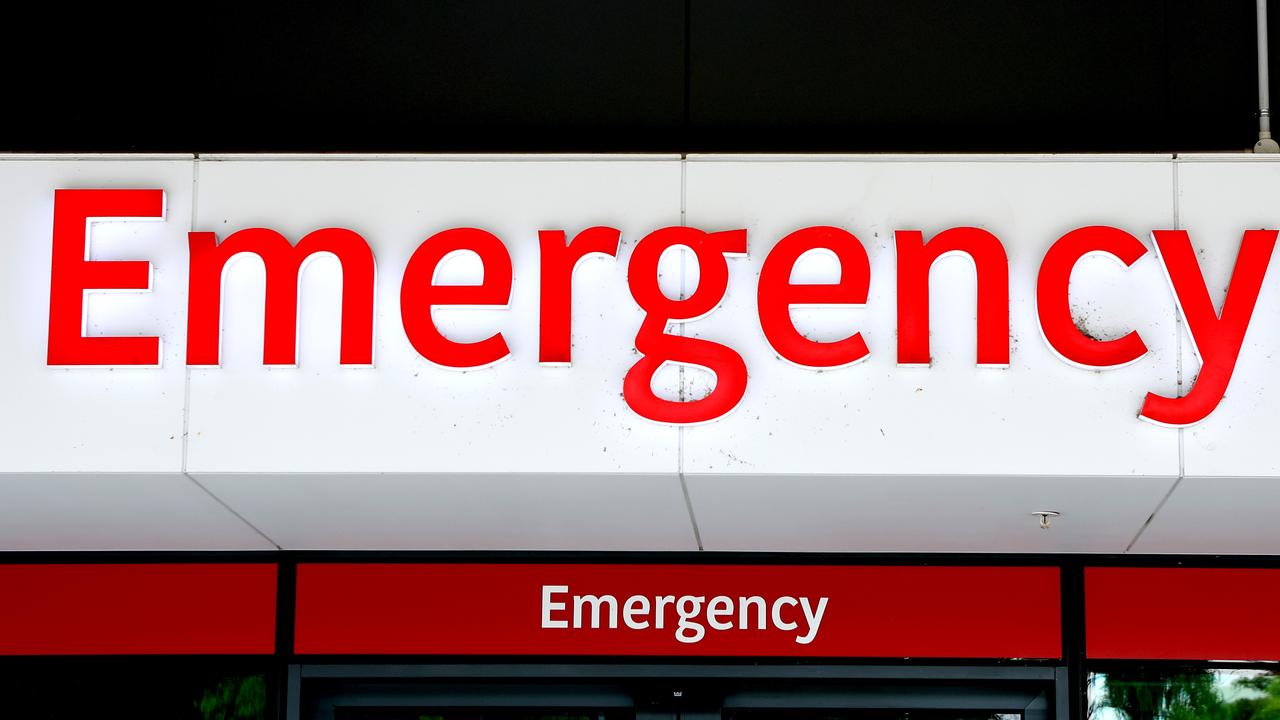Poll: Are you getting the Covid booster shot?
Aussies are being urged to get their Covid booster as a new contagious variant is expected to drive a winter wave across the country.
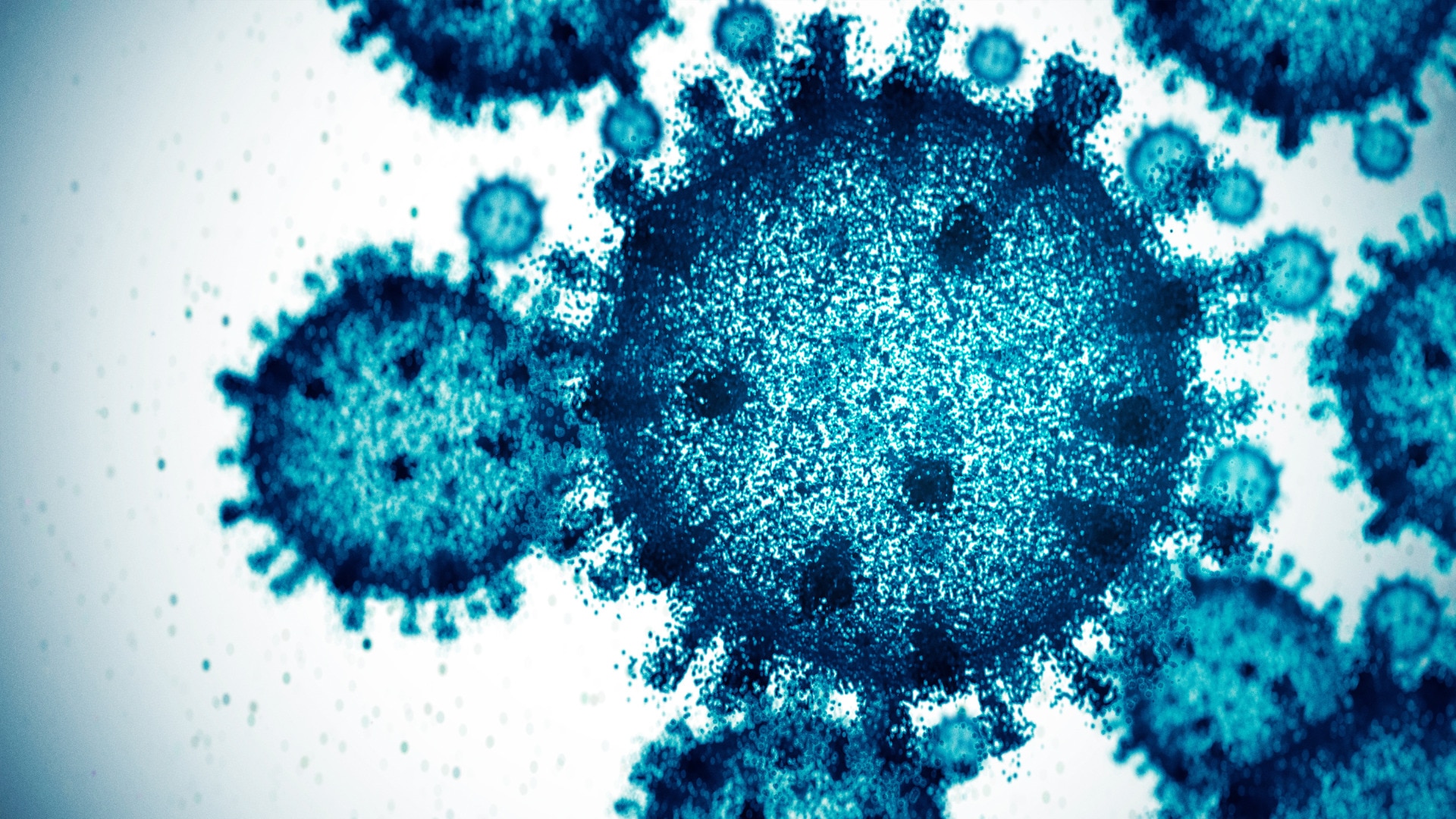
Health
Don't miss out on the headlines from Health. Followed categories will be added to My News.
Australians are being urged to get their Covid booster shot as a new contagious variant – already spreading overseas – is expected to drive a winter wave across the country.
Just over six per cent of Aussies have received a booster shot in the last six months, with 1.3 million Covid vaccine doses administered to people 18 and older, national data shows.
“To know that those rates are down is a worry because we still see people in hospital,” Deakin University Professor and Epidemiology Chair Catherine Bennett told news.com.au.
“While we now thankfully see fewer deaths due to Covid … in 2024, they’re still five times higher than influenza. So Covid is still something to worry about.”
Last year, there were 4,981 deaths involving Covid-19 and 1,006 deaths related to influenza, according to the Australian Bureau of Statistics.
As we head further into winter, the NB. 1.8.1 variant – a descendant of the Omicron JN. 1 – is expected to become the dominant variant across the country.
“It’s quite infectious. So, it’s one that’s particularly capable of latching on to our respiratory linings,” said Professor Bennett.
“We’re seeing it right across the globe and it has that advantage that it’s easier to spread and we’re not as immune to it.”
“So it will be the one that drives our winter wave here.”
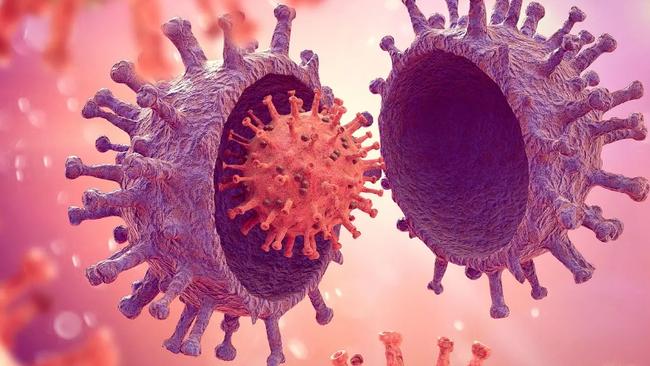
The World Health Organisation (WHO) last month designated NB. 1.8.1 – which is driving up infections in Asia – as a “variant under monitoring”.
Like previous Omicron variants, Professor Bennett said symptoms don’t always present like a cold or a respiratory infection.
“For some people, it will just be like a tummy bug, diarrhoea, and fever. You (also) hear a lot of people describing it as a weird bug, where it just doesn’t feel right and you’re not quite sure if you’re unwell or not,” she said.
“People can also still lose their sense of taste and smell with this variant.”
Professor Bennett said the rise of an infectious variant coupled with likely waning public immunity from Australia’s “mild summer wave” could lead to a rise in hospitalisations.
“We didn’t see the same rise in hospitalisation that we have over other summers. So, for a lot of people, they would have avoided an infection over summer.
“So there’s a combination of (NB. 1.8.1) being infectious and looking different so our immune response isn’t strong, combined with probably more waning immunity that we’ve seen for a while because we’ve had less infection around compared to previous winters.”
Covid booster and flu shot
Winter is also expected to bring influenza and more cases of Rhinovirus.
“There’s been rhinovirus circulating and people have nasty colds that have included fever and lasted for more than a week,” said Professor Bennett.
To better protect ourselves against Covid, Professor Bennett encouraged Aussies to consider getting the booster now, in the early days of winter, as it takes a “couple of weeks to work”.
“Covid and flu are still coming, so, I think people should watch out over winter. It’s a good time if you’re due for a booster and particularly if you haven’t had the infection over the summer, then it’s definitely worth thinking about.”
“Health authorities are still really particularly recommending boosters for people who are 65 and older, and if they’re 75 and older or they’re immunocompromised, then they might also be eligible for two doses a year, which would help them get through summer and winter waves.”

Adults aged 18–64 years who do not have severe immunocompromise are recommended to receive a single primary dose of the Covid-19 vaccine and can consider a further dose every 12 months, according to the Department of Health and Aged Care.
“The vaccines we have are JN1 targeted, and so that’s good because this a descendant from the JN1 variant.
“We do know vaccines help protect against long Covid as well. And so again and they that’s more of an impact for younger healthier adults.”
Professor Bennett said Aussies can have their flu shot at the same time as the Covid vaccine – the latter of which has been found to reduce the risk of hospitalisation by 90 per cent.
“This is not a bad time to actually have both flu and Covid vaccines at the same time ahead of the winter wave. It gives you the best benefit from having both those vaccines.”
A study published in the Medical Journal of Australia found receiving a Covid booster alongside the flu shot could reduce the hospital admission rate for Covid by up to 14 per cent.
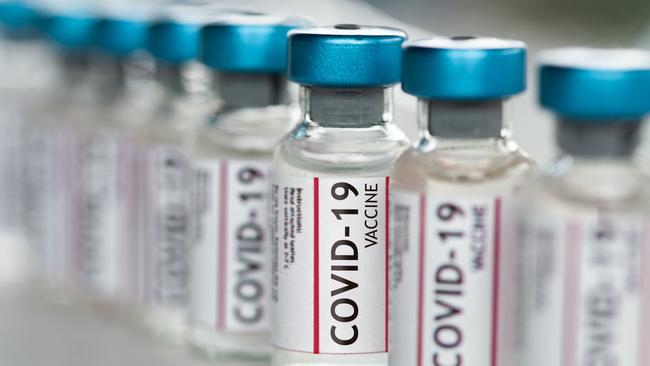
‘Good position over winter’
On Friday, Federal Health Minister Mark Butler urged younger people to consider getting a booster and older people, in particular, to get vaccinated.
“I do encourage, particularly as we head into winter, for people to think about the last time they got the Covid vaccine,” Mr Butler, who had just received his booster shot, told ABC radio.
“If you are over 75, you should have one if it’s more than six months since you had your last booster.
“If you’re 65 to 74, if it’s more than 12 months and for everyone else, have a serious think.
“I’ve just got my booster over the last couple of weeks, and I think that puts me in a good position over winter, and other Australians should make sure that they equip themselves similarly.”
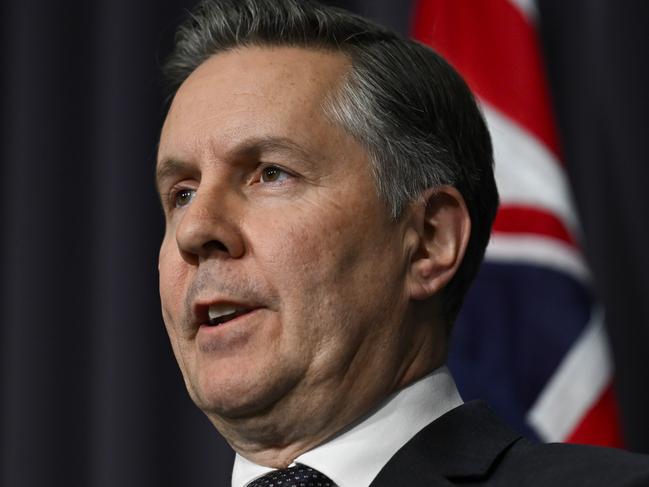
Professor Bennett said while she doesn’t want to incite panic over Covid, Australians should be aware.
“It’s important that people know what’s happening, that they know that in the next few weeks, each time they go out, here’s a greater risk there’s someone with Covid in their mix.”
“For people who are particularly vulnerable, it just might mean having a quiet a few weeks over winter where they mix less and they go out more carefully,” she added.
“People will wear masks again as well to protect themselves, and that’s good. If we can all kind of do a little bit to keep infection rates down, that will make our winter safer for everyone.”
Queensland record low vaccine rates
The reminder comes as new figures released last week show Covid vaccination rates in Queensland are at their lowest since the jabs were introduced five years ago.
Fewer than 250,000 Queenslanders have received their free Covid booster this year, prompting urgent calls from doctors to people who have not yet been vaccinated to get the jab.
Data from the Department of Health, Disability and Ageing revealed more than 15,000 Covid cases had been reported in Queensland since January, with almost 3000 people hospitalised with the virus.
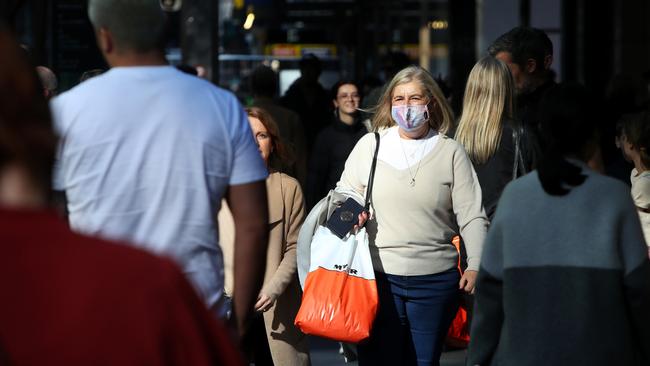
“We have dropped the ball with Covid-19 vaccinations, but this disease is still very prevalent in the community and poses a serious threat to high-risk patients,” Mater director of infectious diseases Paul Griffin said.
“Particularly for high-risk people, it should now be a once-a-year booster, just like the flu vaccine is, and with winter here next week, now is the time to get vaccinated and it’s safe to get them both together.”
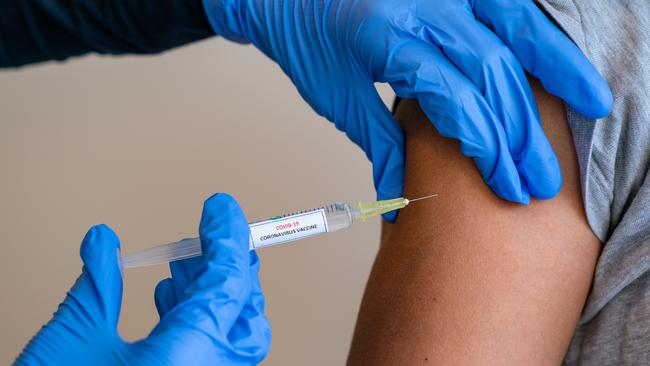
The NB 1.8.1 strain is yet to take a dominant hold in Queensland, where the variant accounts for about 10 per cent of cases, Griffith University research shows.
But in the meantime, Queensland health providers are dealing with high cases of both flu and RSV, in addition to Covid.
More than 2000 Queenslanders have been hospitalised with influenza this year.
Cases are up more than 30 per cent from the same time last year, but only a quarter of Queenslanders have been vaccinated.
“We are at our lowest levels of vaccination and protection in five years and with early rises in cases with winter approaching, the impact on our healthcare system could be significant, particularly with high levels of flu and RSV,” Professor Griffin said.
The Covid and flu vaccines are free in Queensland and available at most pharmacies and GP clinics, and they are safe to receive at the same time.
In addition to Covid and the flu, about 12,000 cases of RSV have been reported in Queensland this year, with more than 1500 people hospitalised.
“More than half of these hospitalisations have been for the most vulnerable in our community, babies less than six months and people over 65,” Professor Griffin said.
RSV is the leading cause of hospitalisation for babies in Australia, and Queensland recorded the highest number of deaths due to RSV last year.
RSV vaccinations are free for pregnant women, and the immunity is then passed on to babies until they are six months old.
– With NCA NewsWire
Originally published as Poll: Are you getting the Covid booster shot?





